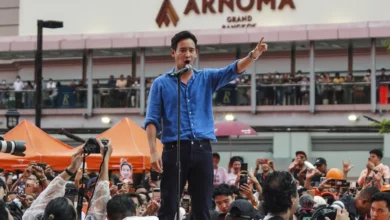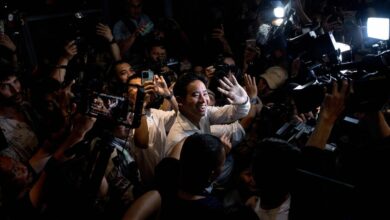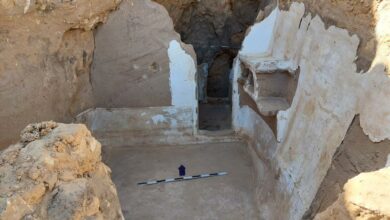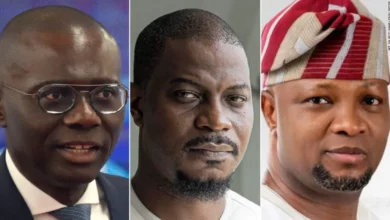
ASSIUT — Canvassing the Upper Egyptian city of Assiut on referendum day, the denser population in rural areas were predominantly leaning toward voting “yes” on the draft constitution, in hopes that this would mean stability.
A few hours later, initial results showed that the “yes” voters were indeed the majority, totaling 76 percent, versus 24 percent for the “no” camp.
Throughout Saturday, long queues were visible outside polling stations, but while it seemed the turnout would be high, figures show that only 590,675 out of 2,127,688 eligible voters actually cast their ballots.
While numerous voters Egypt Independent spoke to at polling stations rejected the constitution, the majority gave it their approval, with Assiut coming in third place in “yes” votes, after North Sinai at 82.2 percent and Sohag at 78.7 percent.
The result may come as a surprise after the 17 November collision in Assiut, when a train slammed into a bus and killed 51 children. At the time, residents of the area put the blame on the government and there was a seeming rejection of the ruling power.
But in the presidential poll, after picking former Prime Minister Ahmed Shafiq in round one, the majority of more than 60 percent in Assiut chose President Mohamed Morsy in the runoff.
Earlier in the March 2011 Constitutional Declaration referendum under the then-ruling military council, a “yes” vote was billed as a vote for stability, and this was the choice for which the emerging Islamist forces campaigned at the time. Seventy percent in Assiut chose “yes” then, too.
Standing in line at a polling station in the village of Maasara, the craving for stability was palpable. Voters confidently told Egypt Independent that everyone there would vote “yes,” and then started chanting “stability.”
“We want things to move along in the country; we don’t like the trouble and violence between people that we’re seeing,” says Ahmed Farhan, an employee at Assiut University.
Even though many had admittedly not studied the constitution carefully, they believe it will guarantee social equality by advocating for the rights of the poor.
“The most important thing is that it guarantees the rights of workers and farmers. These segments [of the population] get lost while people talk about big plans and ideas, but the constitution acknowledges them and gives them their rights,” says Shaaban Othman, a company worker.
Not everyone would agree, as evident by a wave of walkouts that hit the Constituent Assembly at the tail end of its drafting of the constitution, which included representatives of farmers. Shortly after, Morsy issued the controversial 22 November constitutional declaration that gave him sweeping powers, making his decisions immune to judicial review and protecting a possible dissolution of the assembly by the court.
What ensued led to the current political and social polarization Egypt is facing, in the midst of which the snap referendum was conducted. The opposition of civil forces has since amalgamated mainly in the National Salvation Front, led by Mohamed ElBaradei, Hamdeen Sabbahi and Amr Moussa, all of whom have been accused by Morsy supporters of a slew of conspiracy theories.
Those voting “yes” say mobilization against the constitution is a conspiracy by remnants of the former Mubarak regime, with the aforementioned names thrown around frequently by voters who accuse them of being a self-serving group working against the interests of the country.
“All those making this fuss, what have they done for the country?” asks ambulance worker Mostafa Ali. “All those saying ‘no’ are only worried about their own interests.”
Kamel Thabet, a retired school headmaster, says the former regime is using the referendum as an opportunity to make a comeback on the political scene.
“We want to take the country from the old oppression to a new and free regime. We don’t want to go back, we want to keep going on this path. We don’t want remnants of the old regime to mess with us,” Thabet says.
Some voted “yes” as an expression of support for Egypt’s president, as much as many who voted “no” did so out of a rejection of Morsy and his recent maneuvers.
“‘Yes’ because I see the country improving. I don’t see anything wrong,” says Mohamed Abdel Mohsen, a monitor at a food company.
In the urban center of Assiut, however, the “no” vote was more prominent.
The large Christian community filling one polling station say their “no” votes reflect a rejection of the president’s management of the country, as well as the constitution.
“We want national unity, stability and for everyone to live well with no discrimination,” says Nashaat, an accountant who only gave his first name. He cast a “no” vote, deeming Morsy incapable of realizing these hopes.
Nabil Anwar, a dentist, also voted “no,” explaining: “I vote ‘no’ because a constitution is supposed to be built on consensus and not hijacked by one movement. This constitution will determine my life; my opinion has to be represented.”
Meanwhile, election monitors have documented various violations, including campaigning and mobilization by Muslim Brotherhood members inside and outside polling stations for a “yes” vote, according to National Salvation Front representatives in Assiut.
The front and the April 6 Youth Movement have filed cases against Brotherhood members, accusing them of assaulting monitors at some polling stations.
Ahmed Gamal, an April 6 member in Assiut, says some polling stations had to be closed due to the absence of judges, as a large movement of judges who reject the referendum have boycotted its supervision.




